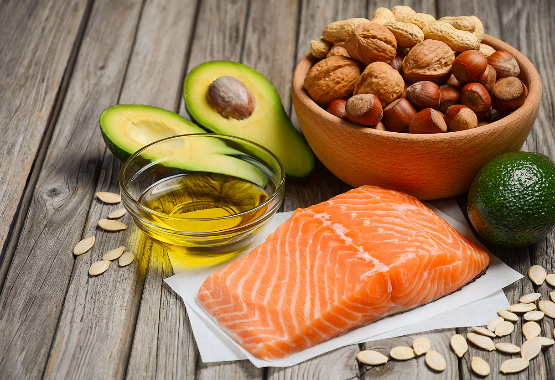4 Natural Ways to Support your Liver
While you might not think much of it while you go about your day-to-day business, your liver works constantly in the background to keep you healthy, energized, and on track for lifelong health.
The liver helps regulate blood sugar, keeps metabolism steady, supplies the body with energy, detoxifies the bloodstream, and more, all while you live your real life in the foreground.
Considering what a crucial role the liver plays, it’s important that you lend it a hand. Luckily, that’s not as hard to do as you might think. Here are four simple steps you can take to support your liver.
Eat Liver-Cleansing Foods
You’ve probably heard the phrase “food is medicine,” and it’s true. One of the easiest ways to care for your liver is to eat the right whole foods, helping: a.) reduce the stress processed foods put on the liver, and b. supporting it in its efforts to clean pollutants and fat out of your system.
The Global Healing Center recommends, among other options, green tea, grapefruit, garlic, beets and carrots, leafy greens, avocados, apples, olive oil, and more. Try to get more of these fresh foods into your diet, either eating them raw or cooking them lightly.
You can also check out an article about how to naturally cleanse your liver.
Ditch Those Painkillers (and Say No to Alcohol)
Okay, you don’t have to ditch them entirely. But wherever possible, ask yourself if you can possibly avoid taking Advil or Tylenol for this particular complaint. Try drinking water when you have a headache; often dehydration is the culprit. If mild arthritis is proving bothersome, try a heating pad or a hot bath.
That’s not to say you can’t take them sometimes, but whenever you can leave the pill bottle on the shelf, your liver will thank you. Oh, and it will thank you very kindly to avoid alcohol wherever possible. Yes, one glass of red wine a night can be good – but what those studies don’t tell you is that no glasses is usually better.
Support Your Liver with Supplements
Your liver works hard detoxifying you and turning the substances you ingest into vital nutrients, storing them for later and releasing them into the body when needed. Because it has to work so hard getting unusable or unsafe compounds out of the rest of your body, the liver is at risk of toxic overload itself.
The answer? Supplements that include turmeric, and milk thistle are the winners for liver detoxification, so start there.
Sweat
One of the precursors to fatty liver disease, which is associated with obesity and can lead to liver failure, is a lack of exercise. People who don’t move their bodies enough are not only more susceptible to cancer, diabetes, stroke and heart disease; they do their livers a major disservice too.
If you don’t get enough exercise, try to put more into your routine immediately. You can start slowly, walking around the block once or twice at lunchtime, then build up from there. Eventually, you should be spending 150-300 minutes per week engaged in healthy exercise, though that can include low-impact activities such as gardening. Don’t put too much pressure on yourself, either: Your liver can lose fat even when you don’t lose a pound, so it’s still worth it.
Liver Support
- Do you feel lethargic, bloated, have weight gain, smoke, or regularly consume alcohol; you may need a liver support supplement.ips
- Easy & Gentle; Only 2 capsules per day; No handful of horse pills like some of the other brands. You should gradually feel an increase in energy, better overall health, & improved mental clarity
- Manufactured in the USA at our cGMP certified facility (enforced by the FDA). NOT manufactured with sugar, salt, dairy, wheat, gluten, soy, preservatives, artificial colors or flavors; We simply use the purest & highest quality raw ingredients






